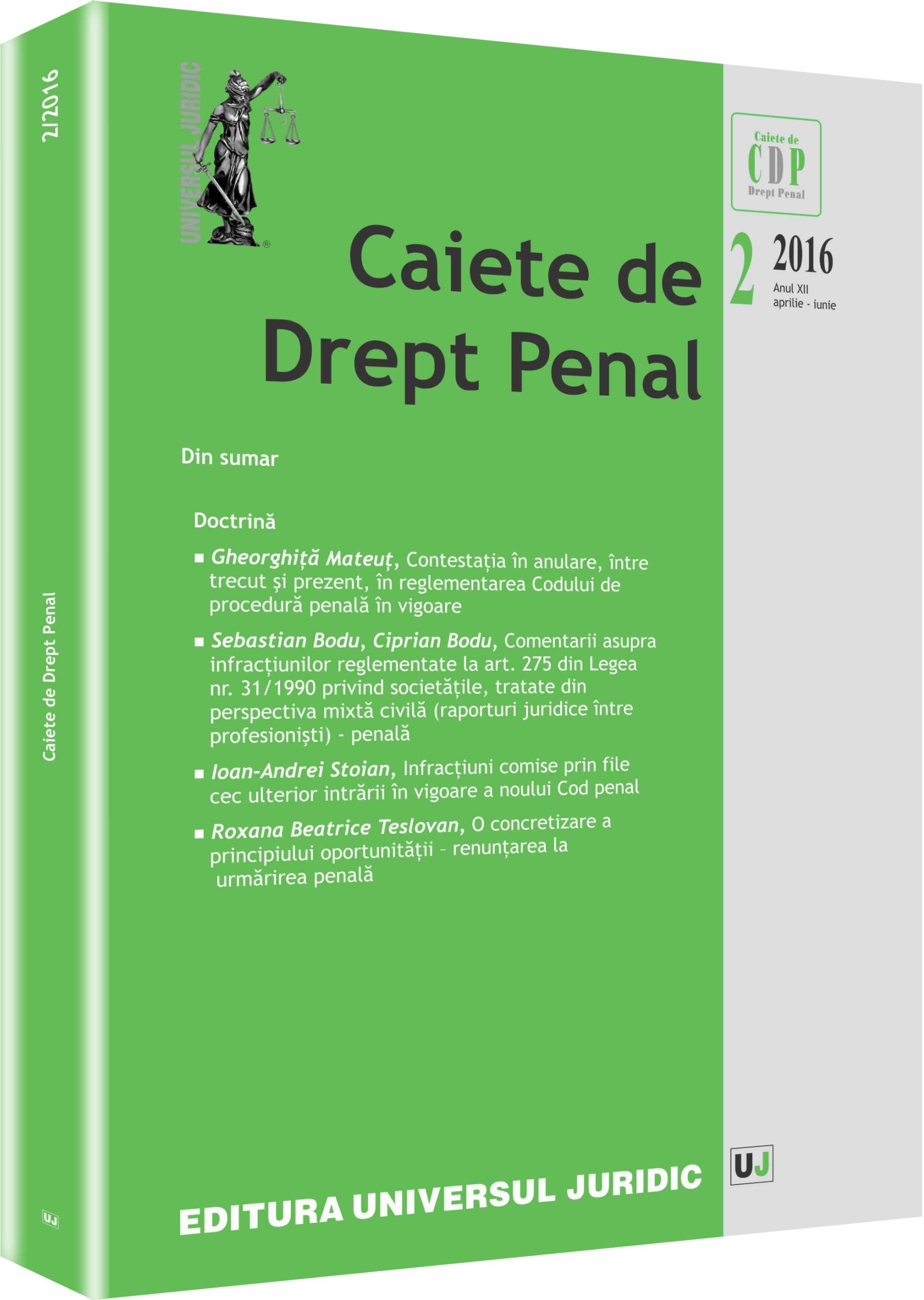Contestația în anulare, între trecut și prezent, în reglementarea Codului de procedură penală în vigoare
The challenge for annulment, between past and present, as regulated in the current Code of Criminal Procedure
Author(s): Gheorghiţă MateuţSubject(s): Law, Constitution, Jurisprudence, Criminal Law
Published by: Universul Juridic
Keywords: extraordinary remedy; irregular summon; wrongful judgement; incompatibility; open court; participation of the prosecutor; participation of the parties; participation of the lawyer;
Summary/Abstract: As regulated in the Code of Criminal Procedure currently in force, in articles 426-432, the challenge for annulment is an extraordinary remedy through which the applicant mainly intends to obtain the quashing of the final criminal judgement issued in breach of procedural rules. Broadly, the former regulation has been preserved; however, the configuration of some of the former cases provided for the challenge for annulment has been changed and new cases were added. Additionally, some aspects regarding the applicants, the request, the term for lodging the request, the competent court, the admission in principle and the trial procedure are regulated in a partially different manner. This study presents the challenge for annulment from both a historical and a comparative law perspective, briefly analysing the existing regulations in France and Belgium, as well as the system of the United States of America. Although, in principle, there is no corresponding remedy in these jurisdictions, there are some remedies which share certain characteristics with the challenge for annulment. Furthermore, the study focuses on a thorough analysis of the cases for the challenge for annulment, indicating to what extent the scientific literature and the case law formed under the previous Code of Criminal Procedure is still topical considering the current regulation. This analysis is of particular importance given the fact that the legislator aims to integrate this extraordinary remedy into a strict legal framework, in order to guarantee res judicata, a principle which secures the stability of law and order and the prestige of the judiciary, while ensuring the removal of procedural errors or, in two distinct cases, the errors in judgement. This study also analyses the regulation of the procedure in the case of a challenge for annulment. Relying on recent case law and anticipating the problems which may arise in the judicial practice, it suggests lex ferenda solutions to these problems. Moreover, the study also captures the incoherence of the current regulation, the numerous inconsistencies, omissions and inadvertences which hinder the interpretation and application of the new law and situate it at a lower qualitative level than the prior regulation.
Journal: Caiete de drept penal
- Issue Year: XII/2016
- Issue No: 02
- Page Range: 11-78
- Page Count: 68
- Language: Romanian
- Content File-PDF

